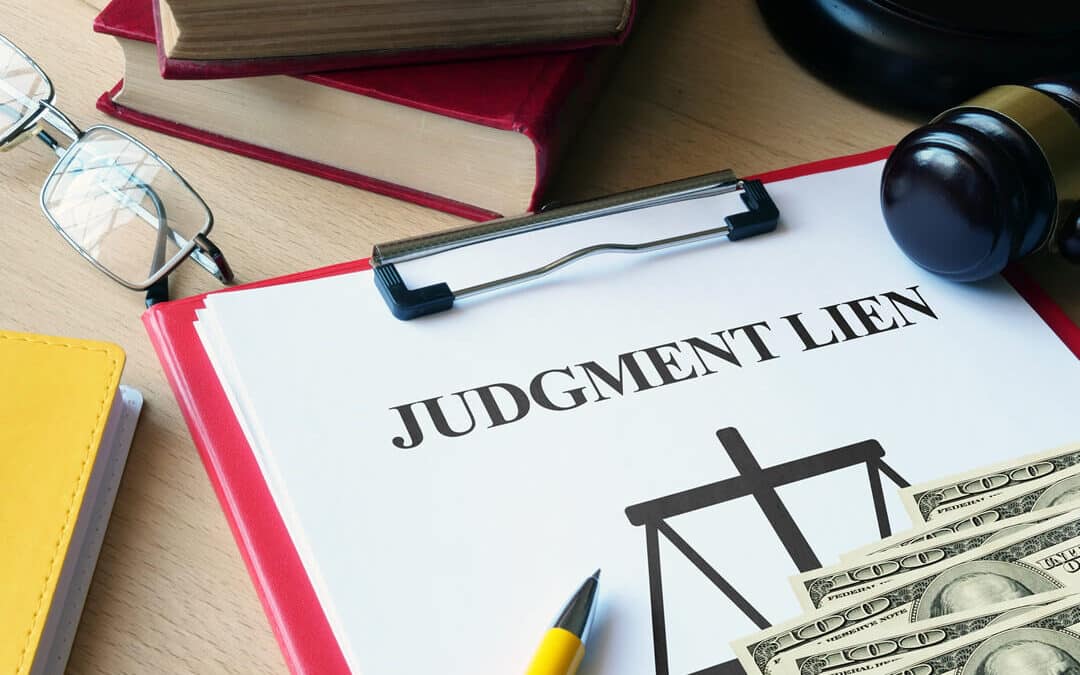Facing a judgment lien because of unpaid debts can be a significant financial burden. If you are dealing with such a financial burden, this article will help you understand how bankruptcy could offer a pathway to avoid the consequences of judgment liens.
Understanding Judgment Liens
When a creditor sues a debtor for non-payment of a loan or debt, and the court rules in favor of the creditor, a judgment is entered against the debtor. This judgment represents a legally binding decision that the debtor owes a specific amount to the creditor. To enforce this judgment, the creditor can take various actions, including:
- Garnishing the debtor’s wages or bank accounts
- Seizing the debtor’s personal property or real estate through court orders
- Placing a lien on the debtor’s home or real estate
The last option, known as a judgment lien or judicial lien, is a powerful tool creditors can use to secure their interest in the debtor’s property. The creditor establishes a legal claim on the property by recording the lien with the local probate office or county records, preventing the debtor from selling or refinancing it without satisfying the lien.
Judgment liens can have severe consequences for debtors, including:
Consequences of Judgment Liens
- Preventing the sale or refinancing of the encumbered property until the lien is satisfied
- Accruing interest on the lien amount, often at a high rate, compounding the debt over time
- Extending the lien’s validity for an extended period, sometimes up to 20 years, through renewals
These factors can trap debtors in a cycle of debt, making it challenging to regain financial stability or leverage their assets for future opportunities.
Avoiding Judgment Liens Through Bankruptcy
Fortunately, bankruptcy laws provide mechanisms for debtors to avoid or partially eliminate judgment liens, offering a path to a fresh financial start. The specific approach depends on the type of bankruptcy filed and the circumstances surrounding the lien.
Chapter 7 Bankruptcy
In a Chapter 7 bankruptcy, debtors can file a motion to avoid a Judicial Lien to remove or partially eliminate a judgment lien from their property. This motion is successful if the following conditions are met:
- The lien is a judicial lien resulting from a creditor’s lawsuit against the debtor, not an involuntary statutory lien (e.g., tax liens) or a voluntary lien (e.g., a mortgage).
- The lien does not arise from child support or alimony obligations.
- The lien impairs the debtor’s ability to claim exemptions on the property, as permitted by federal or state laws.
If the lien conflicts with the debtor’s rightful exemptions, such as the homestead exemption that protects a portion of the home’s equity, the court may grant the motion to avoid the lien partially or entirely.
Chapter 13 Bankruptcy
In a Chapter 13 bankruptcy, debtors have two primary methods to address judgment liens:
- Cramdowns: This process allows debtors to reduce the amount owed on secured debts, such as auto loans, to the current value of the collateral. While cramdowns typically do not apply to primary residences, they can eliminate liens on other types of property, like vehicles.
- Lien Stripping: This technique is specific to real estate liens. If a debtor has a second mortgage (junior lien) on their home, and the home’s value is less than the amount owed on the first mortgage, the second mortgage is considered unsecured. In this case, the debtor can pay off the junior lien through their Chapter 13 repayment plan, effectively stripping the lien from the property upon completing the plan.
Partial Lien Avoidance
Sometimes, debtors may not be able to avoid an entire lien, but can achieve partial lien avoidance. This occurs when the lien conflicts with a portion of the debtor’s exemptions on the property.
Reopening a Bankruptcy Case
Debtors may discover judgment liens against their property after completing their bankruptcy case and receiving a discharge. Reopening the bankruptcy case and filing a motion to avoid a judicial lien may be possible in such situations. While this process may involve additional fees, it can be worthwhile to eliminate or reduce the lien’s impact on the debtor’s fresh financial start.
Importance of Getting Help Filing Bankruptcy on Judgment Liens
Navigating the complexities of judgment liens and bankruptcy laws can be challenging. So, you may wish to get the help of an experienced bankruptcy. A knowledgeable bankruptcy attorney can guide you through the process, ensuring that all legal requirements are met and maximizing the chances of avoiding or minimizing the impact of judgment liens.
The bankruptcy attorneys at Brock & Stout have helped thousands of clients protect their property from judgment liens. If you are worried about how a judgment lien could affect your financial situation, contact us for a free evaluation. Let our family help your family.

